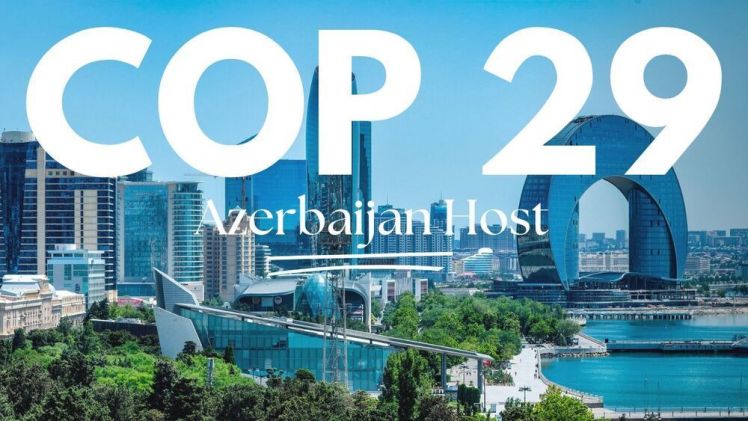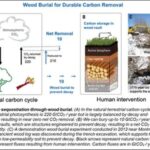To call the greenwashing gabfest at Baku, Azerbaijan a failure would be an understatement. It was an embarrassment.
COP29 ended in oil-rich Azerbaijan with mutual recriminations. Shamefaced developing nations pledged to distribute $300 billion yearly in what amounts to reparations to the underdeveloped world by 3025. The money is supposed to pay for the damages greenhouse gas emissions have done to countries that had little to do with producing greenhouse gases.

The potential recipients rejected the offer as far too parsimonious. They said $1.3 trillion is more in the ballpark. The meeting, which went into overtime, ended, to quote American poet T.S. Eliot, “not with a bang, but a whimper.”
Here’s what Politico reported from Baku:
“It’s ridiculous. With this number, they are spitting in our faces,” said Panama’s climate envoy, Juan Carlos Monterrey Gómez.
“We don’t take that seriously,” said Kenyan climate envoy Ali Mohamed, referring to the $300 billion figure.”
Nailing down the “loss and damage” fund was the major agenda item for COP29. How to deal with the gap between the perpetrators of global warming and its poorer victims has long been on the agenda of the COPs, but never resolved. The Washington Post reported, “The debate over finance at this year’s climate conference is exposing tensions that have been building for more than a decade. In 2009, wealthy nations set a goal of providing $100 billion a year by 2020 to help poor countries cope with climate damage, but they didn’t reach that target — widely viewed as insufficient — until 2022.”
The COPs going back at least five years have seen the rich world promising to flesh out the earlier hand-waving promises. COP27 in Egypt promised to create a formal mechanism. But until last year’s COP28 in Dubai, the promises had no specific numbers attached to the promises.
In Dubai, some numbers emerged: The United Arab Emirates, home to Dubai, said it would put up $100 million. Germany also pledged $100 million, while the European Union committed to $245.39 million, Britain promised “at least” $51 million, the United States agreed to give $17.5 million and Japan $10 million.
In addition to those promises, as skeptics noted, there were no mechanisms to handle the receipt and disbursement of the money and no clarity on whether the money would come in the form of grants or low-interest loans. The delegates punted those decisions to Baku.
Well, as conservative columnist George Will would say. The Baku delegates again dropped back and punted on the details. Bloomberg reported, “Thorny questions over the scale of the finance — including how much would come in the form of affordable support, with grants or deeply discounted loans — were left unresolved.”
There was also a definitional dispute over what constitutes a developing (recipient) country as opposed to a developed (contributing) country. It was about China.
The world’s largest emitter of greenhouse gases, China has long claimed a designation as a “developing country,” and continued to make that assertion at Baku. China insists on that label, as it allows the country to make decisions on climate funding on its own terms, not those of the U.N.
According to LaCroix, the French Catholic newspaper, “Canada and Switzerland have proposed new criteria based on national income and carbon emissions levels. As the largest greenhouse gas emitter and the world’s second-largest economy, China is the primary focus of these proposals. The United States has gone further, calling for China’s ‘developing country’ status to be revoked, citing its economic strength, which differentiates it from the broader ‘Global South.’ As long as it holds this status, Beijing has no binding financial obligations.”
A Wall Street Journal article carried this headline: “Is China a ‘Developing’ Country? That’s the Trillion-Dollar Question at U.N. Climate Talks.”
The inconclusive wrangle over the loss and damage fund also avoided decisions on how the funds would be distributed (grants v. loans), accounted for, and managed. The delegates also couldn’t agree on whether the source of the funds would be exclusively from governments or from a combination of public and private donors.
The Indian news source Rediff.com reported, “developing nations are demanding that most of the funding come straight from developed countries’ public coffers. They reject the idea of leaning on the private sector, which they say is more interested in profit than accountability.
“Meanwhile, the US and EU are pushing for a more expansive global investment goal that draws from public, private, domestic, and international sources. They are also urging wealthier countries like China and Gulf states — classified as developing in 1992 — to chip in, pointing to their more prosperous status today.”
There was also a raging dispute at Baku over references to fossil fuels. COP28, for the first time, included language supporting a phase out of fossil fuels. But Azerbaijan host officials gave speeches lauding oil and gas as keys to future economic development around the world. They frowned at expressions of anti-oil-and-gas attitudes.
Bloomberg reported, “Saudi Arabia and its allies had two words they didn’t want to see repeated in a COP29 deal: ‘fossil fuels.’” The language describing the $300 billion offer on the table bowed to the Saudis and “didn’t recommit specifically to move away from the dirty energy sources that compound the problem — something the US, European Union and other countries pressed for in exchange for the funds.”
Now its on to Brazil and the port city of Belém, population 1.3 million, for COP30 in November 2025. Brazil will be the third major oil country in a row to host a COP. Brazil is Latin America’s largest oil producer and the seventh largest in the world, with over 96% of it crude produced offshore. It has the largest deep oil reserves in the world. The country is also a major gas producer, with annual production of over 50 billion cubic meters.
According to the U.S. International Trade Administration, “The oil and gas market has, for years, accounted for most investments in the Brazilian economy, with about 10% of the country’s GDP.”
Is it time to defund the COPs?
–Kennedy Maize
The Quad Report
To comment:
kenmaize@gmail.com




